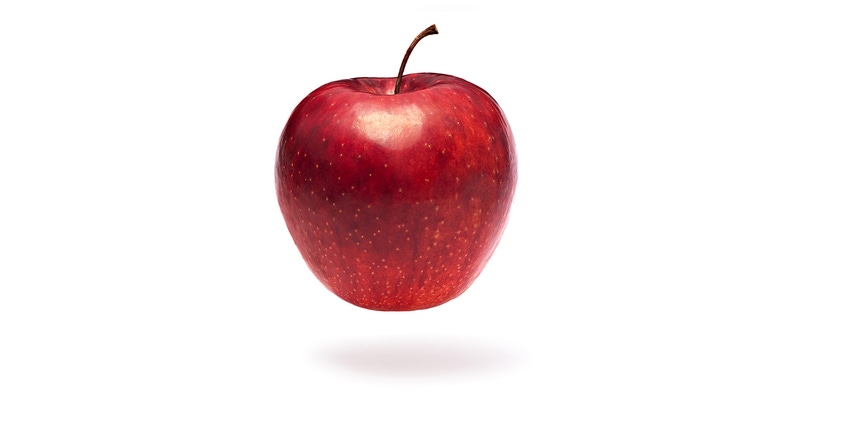May 11, 2018

I stood in front of the kiosk screen reading every question. After a weeklong trip abroad, I returned to the U.S. and made my way through U.S. Customs and Border Protection. As I read and answered each question, I made it to the most controversial one as of late, No. 11: “I am bringing fruits, vegetables, plants, seeds, food, insects — click yes or no.”
Perhaps you missed the news item. A woman traveling from France to the U.S. on a Delta flight attempted to bring a fresh apple into the country. When Crystal Tadlock got off a plane in Minneapolis to make a connecting flight to her home in Denver, she had to pass through U.S. customs. On the 8½-hour flight, Tadlock was given an apple. Rather than eat it right away, she tucked it in her carry-on bag. Going through security, a customs agent found the apple. Tadlock had to surrender the apple and pay a fine — $500. The woman felt the fine and treatment by customs unreasonable since the Delta crew provided the apple.
So, as I stood at the computer screen, all that ran through my head was, did Tadlock miss this question?
What’s at stake
I take a hard line when it comes to protecting America’s agriculture industry. It is important all citizens remain vigilant in ensuring the safety of our food supply, and that means reading and answering all questions honestly when passing through customs.
There are certain items brought into the U.S. from foreign countries that are restricted, according to USDA regulations. Some of these prohibited agricultural items can harbor plant pests and foreign animal diseases that could seriously damage America’s crops, livestock and the environment.
Take, for instance, the cottony cushion scale. This insect had never been seen on American soil prior to 1868, but it arrived on a plant shipment from Australia. It took up residence in an orange grove and began sucking the juices from trees — and then the trees could not produce fruit. The insect multiplied to levels that threatened the survival of the U.S. citrus industry.
Honestly, I would think that Tadlock — a professed vegan — would want to protect her main food sources.
2 things Tadlock got wrong
To blame someone else or use the “I forgot” reply does not excuse an action.
First, Tadlock contends that the apple was clearly in a bag marked by Delta. Unfortunately, there is no policing what individuals put in bags. It could’ve been an apple from another country, not necessarily from the airline. To blame Delta for giving out an apple is ridiculous. It was not the airline that did not declare.
Second, Tadlock read the same set of questions I did. She just did not check the right box. If she honestly did not remember, then unfortunately there is no pass for forgetfulness. Agriculture cannot trust that individuals mean no harm. There must be safeguards at our points of entry. U.S. customs agents must do their jobs. Our agriculture industry relies on them to keep our food system safe.
Avoiding the fine
Tadlock had two choices — throw the apple away after reading the declaration form or declare it. Either may have helped her avoid a fine.
If Tadlock would have declared the apple, it would’ve been inspected. U.S. Customs and Border Protection agriculture specialists at the ports of entry determine if declared items meet the entry requirements of the U.S. Depending on the country of origin, some fruits, vegetables and plants may be brought into the country without advance permission, provided they are declared, inspected and found free of pests.
So, if you are heading abroad, remember all travelers entering the U.S. are required to declare meats, fruits, vegetables, seeds, soil and animals, as well as plants and animal products, they are carrying, whether in checked or carry-on luggage.
If you don’t, I am counting on a U.S. customs agent to catch your item before it causes problems for the American ag industry.
You May Also Like




